Politics
Polanski calls on Starmer to step down
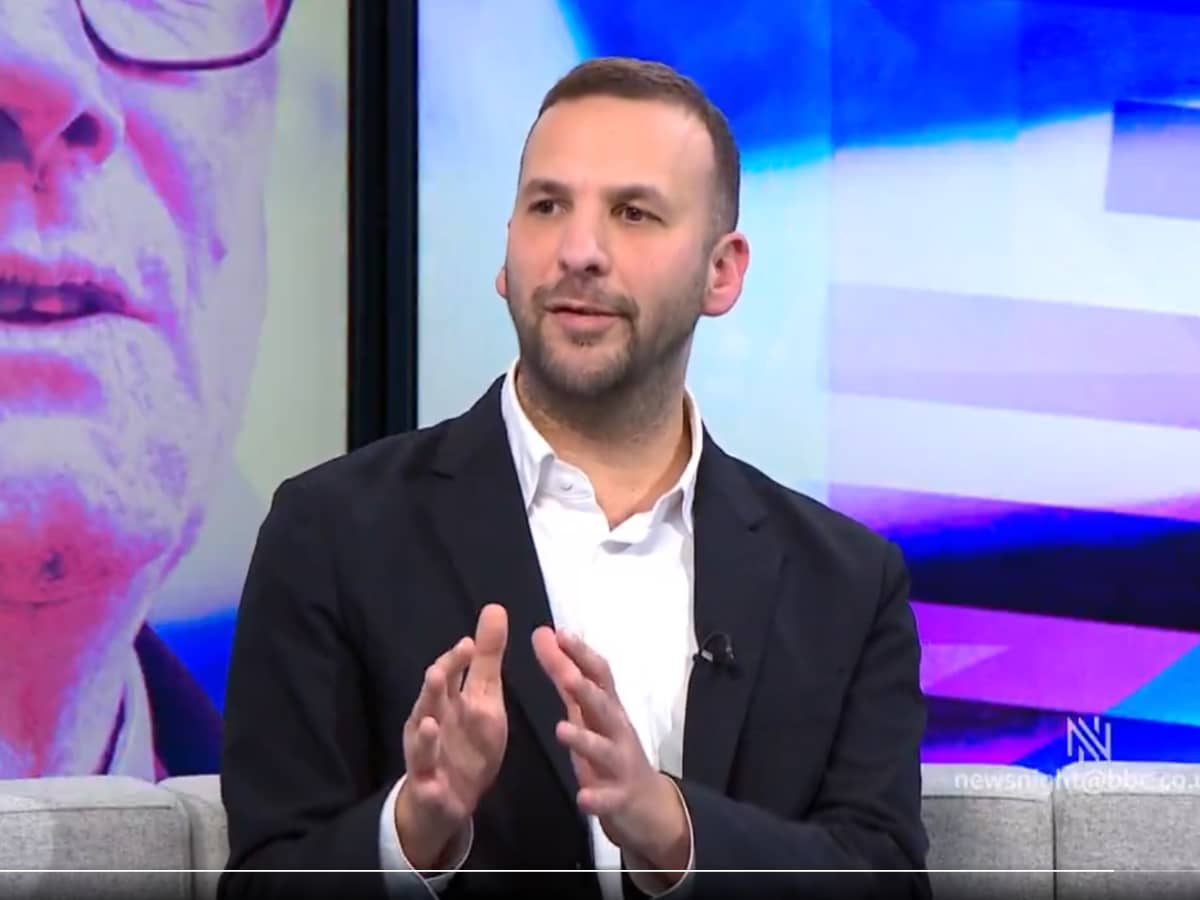
Keir Starmer is perhaps the most unpopular prime minister we’ve ever had, and he’s embroiled himself in what may be the most disgusting scandal. Can this loathed public figure survive this self-inflicted catastrophe?
Almost certainly not.
And one person who’s ahead of the curve on this is Zack Polanski:
Important discussion this evening on Palantir.
Keir Starmer having meetings in Washington – and then the US spy tech company receive £260m.
The largest defence contract in British history – through Peter Mandelsons lobbying company. https://t.co/i9lDjfEx22
— Zack Polanski (@ZackPolanski) February 4, 2026
Time to go
As we’ve reported, Starmer appointed Peter Mandelson to be ambassador to the US despite knowing he maintained a friendship with the paedophile Jeffrey Epstein after his conviction. The media presented it as some great revelation when Starmer admitted to this in parliament yesterday, but it was never a secret; the media just failed to interrogate Starmer when he returned Mandelson to public office.
We reported on Mandelson maintaining his ties with Epstein way back in 2023.
It wasn’t a secret.
Starmer knew.
The media knew.
This is all just a grim pantomime.
In the clip above, Polanski describes hiring Mandelson as “the most catastrophic lapse in judgement you can imagine”. In our opinion, the “lapse of judgement” is that Starmer thought the media would ignore this obvious scandal forever. It’s not that he hired a notorious sleazeball, because he clearly doesn’t care about that; after all, he’s part of a movement which is entirely comprised of such people:
Peter Mandelson is not some random outlier.
He was one of the founders and central pillars of the New Labour project.
He was a central player in the Starmer project – including as mentor to the chief of staff.
He is the very core of the Labour Right! https://t.co/lypJOfU8hz
— Owen Jones (@owenjonesjourno) February 4, 2026
Polanski also said:
I think it’s clear the Prime Minister should do the right thing and step down, because actually the rut runs right throughout the Labour government.
This is a man in Keir Starmer who knew that Peter Mandelson was friends with one of the most known paedophiles in the world, was still staying in his apartment, and he brought him into the heart of government solely because, I imagine, he thought he could whisper in Trump’s ear.
Step down
Polanski is absolutely correct that the “right thing” for Starmer to do would be to “step down”. Given that this is the guy who hired Mandelson, however, there’s no reason to expect him to do the right thing.
Featured image via Zack Polanski
Politics
The Mandelson scandal has exploded the myth of McSweeney

The post The Mandelson scandal has exploded the myth of McSweeney appeared first on spiked.
Politics
Neva Novaky: Farage’s long career of noise over governance
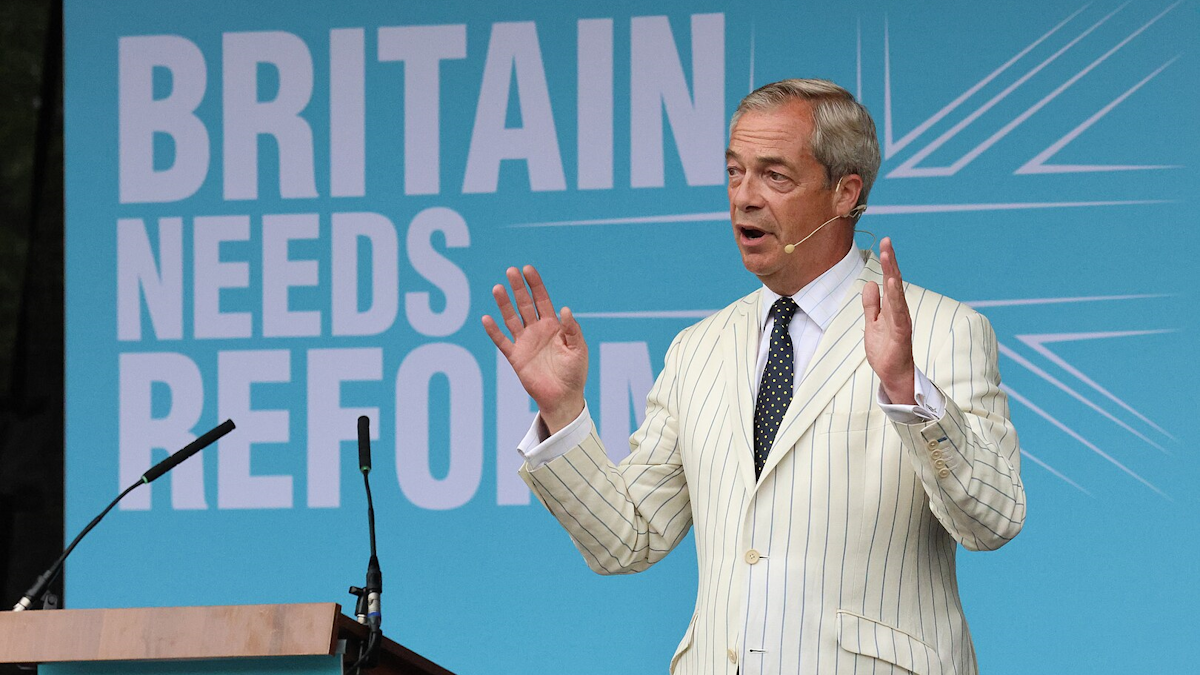
Neva Novaky is Surrey Area Deputy Chairman and was a candidate in the 2019 General Election.
As a small state, low tax Conservative, I can see why some fellow Conservatives have been tempted by Reform. However, I have no intention of joining them. My reasons are not rooted in tribal loyalty but in judgement, delivery and national interest.
Reform will not deliver low taxes. They claim to be a low-tax party but that is already being tested – and found wanting – in the five councils they control.
Residents of Derbyshire, North Northamptonshire, West Northamptonshire and Leicestershire Council’s, are seeing their council tax increase by the maximum of 5 per cent allowed by law. Kent residents face a 3.99 per cent increase. This is a huge betrayal of the public given they were elected on a promise to cut council taxes, whatever Farage claims.
They are also now backtracking on the £90 billion of tax cuts they promised in their manifesto. In autumn of last year, Nigel Farage said that his party now felt that substantial tax cuts were not realistic.
Reform also announced they are against the two-child cap.
They did not propose a tax cut to support families but defended a government hand out. They put the emphasis on the state giving you back the money you pay them in the first place after taking a cut, rather than allowing you to keep more of your own hard-earned money. This is socialism dressed up as populism.
Then there is Farage’s track record as an elected official for over 20 years – he was a Member of the European Parliament from 1999 to 2020 and there was one single issue that he stood for – UK’s departure from the EU. Yet, it was not Farage, the Brexit Party or UKIP that delivered Brexit or even the intellectual arguments in favour of it. We did that as Conservatives in government.
During his 20+ years representing the UK in the European Parliament, he also did not influence EU legislation or arguably do the job he was paid to do. Outside of plenary sessions where he played to the UK media, he did not do the committee work so as to even try and defend the UK’s national interest in the policy-making process. His attendance was notoriously bad. Meanwhile, Conservative MEPs did the job at hand! They were present at votes and negotiations at all levels (committee and plenary) and worked hard to defend our national interest.
He’s had questions around his expenses throughout his time in the European Parliament and they don’t make me confident that Reform would be a safer pair of hands if in charge of the treasury.
During his time as an MEP, Farage and the group he co-chaired faced various spending scandals. From 2004 till 2019, he co-chaired a European Parliament group of MEPs. Farage was personally found to have not respected rules on staff funding and had his salary cut for 10 months to compensate for it.
His political group’s EU wide alliance had to repay their full 2016 grant of €1.1 million.
While Farage’s team in the EU did underline that they were under higher scrutiny on their public spending for politically motivated reasons, this was also the case for Conservatives. The reality is that decisions taken by Farage and under his watch left him and his European grouping vulnerable. Farage is responsible for at least some of those decisions and indirectly responsible for what happened on his watch.
Then of course there is Russia.
Reform’s weak stance on Russia is not in our national interest – amid the ongoing Russia-Ukraine war, threatening the freedoms we fought so hard for decades before, it is difficult not to see Reform’s history and stance on Russia through the lens of national security. Last year, a UK court found Nathan Gill guilty of accepting bribes to promote a pro-Russian narrative. Gill was a former MEP in Farage’s party under his leadership and briefly head of Reform in Wales.
Furthermore, Farage’s voting record on Russia speaks volumes. In October 2019 before leaving the EU, while we were supporting European efforts to take stronger action against Russian propaganda, Farage and his MEPs were opposing it.
Farage did make a public statement last year finally criticising Putin, saying he was a “very bad dude”. However, that was after he had once said Putin was the politician he most admired and repeated the Russian propaganda after the invasion of Ukraine that the West was to blame for provoking Putin. Everyone is allowed of course to change their minds, but historical statements speak to Reform’s inability to make sound judgements in the interest of national security.
Reform’s track record and that of Farage demonstrate to me that my political values will not be better fulfilled by them. This is not about tribalism – after all, Winston Churchill changed parties. It is about making sure that a potential trade is a trade up. As Edmund Burke argued, those in public office fail the public when the sacrifice sound judgement for an applause. Reform are good at playing for applause but they fail the test of sound judgement and delivery needed to lead Great Britan.
I am sad to see some Conservatives who were unsuccessful in fulfilling their aspirations in my party join Reform. There may be a lesson for us on how to manage aspiration and treat teamwork as a key skillset needed from those in public office. After all, national interest must come before ego.
Those leaving because they fear Reform would beat them, my advice is, do not make it a self-fulfilling prophecy. With elections three years away, there is everything to fight for.
Politics
Peace campaigners protest arms fair at Birmingham NEC

Peace campaigners have held two days of protest to call attention to a controversial arms fair hosted by Birmingham’s National Exhibition Centre (NEC).
There were no arrests outside the Specialist Defence and Security Convention (SDSC-UK) on 3-4 February. Although two protesters were carried off the site.
Actions by around 60 protesters included a mock drone attack ‘die-in’, street theatre from the Red Rebels, a silent vigil led by Quakers, interfaith prayers and drumming.
Arms fair ‘not welcome’
The Stop SDSC-UK campaign includes Quakers, Campaign Against Arms Trade and others. A spokesperson for the campaign said:
The SDSC-UK isn’t just another exhibition, it’s a showcase for companies that profit from war, human suffering, and corruption.
Weapons sold here end up being used against civilians in conflicts from Yemen to Gaza. This is not welcome in our city.
The SDSC-UK has faced protests in every community it has visited. Campaigners forced previous events out of the Three Counties Showground in 2023 and the Telford International Centre in 2025.
Notorious exhibitors at the arms fair have included:
- Thales, linked to arms used against civilians in West Papua and breaches of sanctions against Russia.
- BAE Systems, whose fighter-bombers have been used in Yemen and whose deals have been tied to massive bribery scandals.
- Qioptiq / Excelitas, providing military optics to regimes known for human rights abuses.
- L3 Harris, whose bomb racks have seen use in conflicts in Turkey, Azerbaijan, Ethiopia, and Libya.
- Elbit Systems, a key part of Israel’s drone fleet involved in attacks condemned as potential genocide in Gaza.
An open letter to Paul Reeve, CEO of the NEC Group, signed by over 400 individuals and 30 organisations including Pax Christi and the Peace Pledge Union. Their Peace Dove mascot delivered it to the NEC on 21 January.
In their letter, the campaigners said hosting the arms fair goes against the NEC’s stated commitment to honest, ethical business.
The UK arms industry alone emits over 1.4m tonnes of carbon dioxide annually. And it has links to nearly half of all international trade corruption cases.
The spokesperson added:
The NEC cannot claim to be a responsible, ethical venue while hosting an event that fuels oppression and destruction around the world.
Campaigners are calling on the NEC to refuse to host the next SDSC-UK.
Featured image via Hugh Warwick / Flickr
Politics
Trump whines about ‘bad publicity’ over ICE murders

As we’ve reported, Donald Trump has been deploying masked goons to terrorise US cities. These anonymous thugs work for the US Immigration and Customs Enforcement agency, and yet the Trump regime is using them to intimidate all Americans – not just those who were born outside the states. This recently saw ICE agents murder Renee Nicole Good and Alex Pretti.
Now, Trump has offered the most self-pitying response when asked about their murders:
Trump on ICE: I hate even talking about it. 2 people out of tens of thousands and you get bad publicity.
Llamas: But they were Americans who died.
Trump: They don’t talk about that we have small trucks. We have been very tough on the waters.
Llamas: The waters?
Trump: Where… pic.twitter.com/eO8juwpY4v
— Republicans against Trump (@RpsAgainstTrump) February 5, 2026
Pitiful Trump
To Trump, the great unfairness isn’t that his goons shot an American in the back; it’s that he’s getting bad publicity as a result.
Truly, he’s the least self-aware and most self-centred man to have ever existed. As such, it makes sense he’d end up as the US president. Trump is the embodiment of the past 80 years of the American Empire without any of the pretence.
In other news, Trump has defended Bill Clinton:
Trump: It bothers that they’re going after Bill Clinton. I like Bill Clinton.
Reporter: What do you like about him?
Trump: He got me. He understood me. pic.twitter.com/wNowPvORka
— Acyn (@Acyn) February 5, 2026
If you’re wondering why they’re “going after” Clinton, it’s because – like Trump himself – he features heavily in the Epstein Files. Once again, it’s a case of ‘poor me‘ from Trump, although this time he’s extended his definition of ‘self’ to include the other degenerates who enjoyed Epstein’s company.
It’s obvious Trump isn’t thinking about Epstein’s victims at all. Sadly, he isn’t alone in this, as Maddison Wheeldon wrote for the Canary:
“flawed redactions” of the Epstein Files have made nearly 100 survivors vulnerable, with the women’s lives “turned upside down.” However, the mainstream media circus around the release of the files is conveniently diminishing both the horror and scrutiny of these atrocious crimes, as well as the accountability of the powerful figures responsible for them.
Yet another lawsuit
In this clip, Trump is defending his decision to sue the US Inland Revenue Service:
Trump: Essentially, the lawsuit has been won. I guess I won a lot of money. I’ll give 100% to charity.
Reporter: You’re taking it out of the system.
Trump: No, I’m putting it back into the system. I’m giving it to charity.
Reporter: 38 trillion in debt and we’re taking 10… pic.twitter.com/ylhbRG4Vg1
— Acyn (@Acyn) February 5, 2026
On this topic, AP reported:
In 2024, former IRS contractor Charles Edward Littlejohn, of Washington, D.C. — who worked for Booz Allen Hamilton, a defense and national security tech firm — was sentenced to five years in prison after pleading guilty to leaking tax information about Trump and others to two news outlets between 2018 and 2020.
The outlets were not named in the charging documents, but the description and time frame align with stories about Trump’s tax returns in The New York Times and reporting about wealthy Americans’ taxes in the nonprofit investigative journalism organization ProPublica. The 2020 New York Times report found Trump paid $750 in federal income tax the year he first entered the White House and no income tax at all some years thanks to reported colossal losses.
Regardless of the precise details, it’s obviously not sustainable to have a country in which the leader is suing his own governmental departments.
ICE
For readers in the UK, it’s worth bearing in mind that both Nigel Farage and Kemi Badenoch have both spoken about importing ICE-style policing to the UK. These same leaders have also done more than their fair share of sucking up to the US president. As such, we need to ask ourselves: is this pathetic, declining mess of a country really what we want to emulate in the UK?
Featured image via NBC
Politics
Corbyn calls to centre focus on Epstein victims
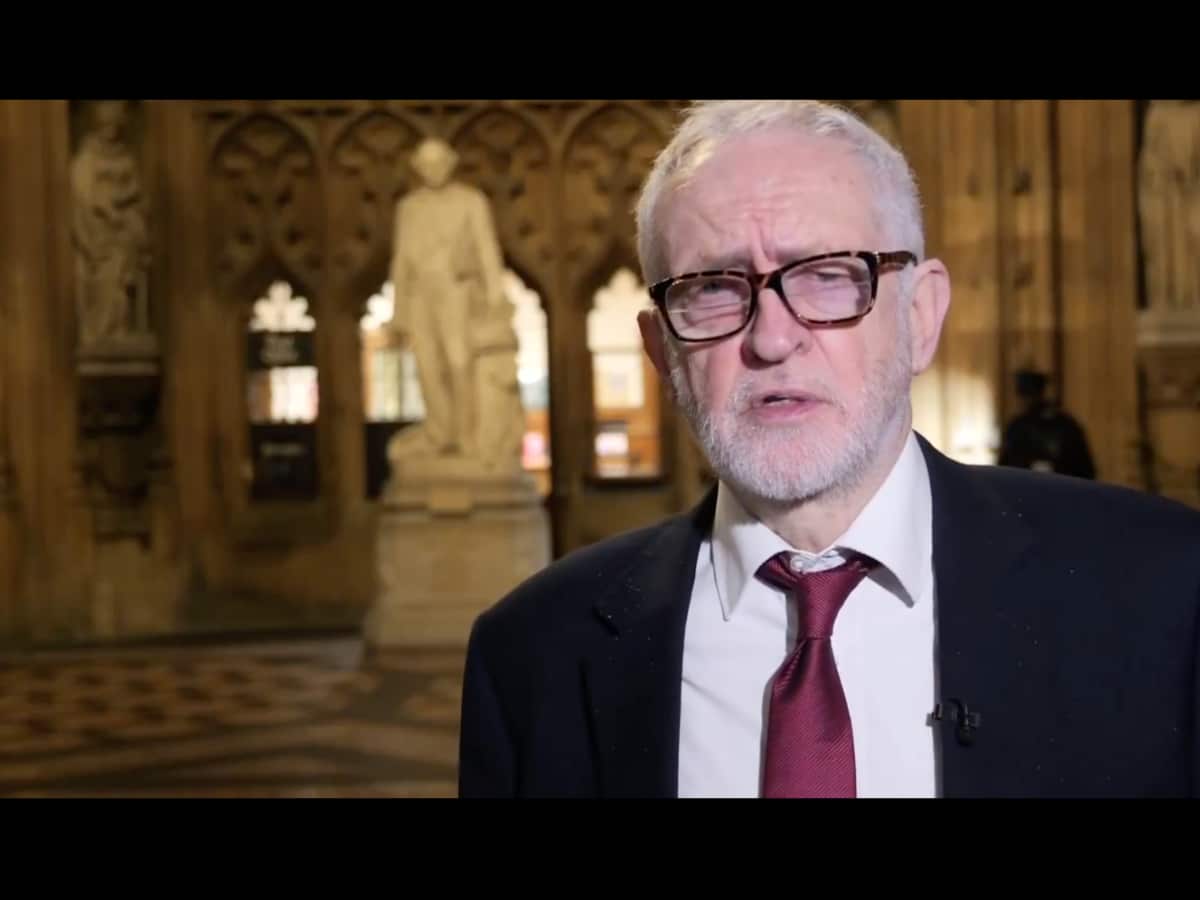
Jeremy Corbyn has demanded a focus on the victims of Jeffrey Epstein as the scandal surrounding Peter Mandelson grows. Speaking from the Central Lobby on 5 February, Corbyn called for the US authorities to interview Mandelson and Andrew Mountbatten-Windsor.
Victims of Epstein’s vile network will be scarred forever by the horrific abuse they suffered. It is them we should be thinking about.
pic.twitter.com/EBgrCCUJnC— Jeremy Corbyn (@jeremycorbyn) February 5, 2026
Corbyn makes plea
Corbyn rightly emphasised that the political activity around the latest Epstein File releases should not overshadow the woman and girls involved in these sex trafficking rings. Pointing out the tragic case of Virginia Giuffre who sadly died by suicide in April 2025, he continued:
Others are in a desperate situation. They will be scarred forever by the experience of the behaviour of Jeffrey Epstein. It is the victims we should be thinking about.
Corbyn’s suggestion that both Mandelson and Mountbatten-Windsor would only be questioned under voluntary circumstances is worrying. These two perverted predators should be in fucking prison, not being politely asked to consider facing justice.
Unaccountable
These remarks are absolutely right. It’s the women and girls who have had their lives ruined who should be at the forefront of these investigations.
As Maddison Wheeldon wrote for the Canary:
It is time we empathise and choose to empower women and girls, not continue this toxic cycle of even the reveal of abuse not centring the abused.
Featured image via Sky News
Politics
Manipulative Phrases To Avoid In A Relationship

And speaking to HuffPost UK, relationship therapist and author at Passionerad, Sofie Roos, said there are “a few types of phrases that almost always do more harm than good in a relationship,” too.
“Many of these aren’t mainly about what you say, but about when you use them, and how they shut down a conversation or augment in a way that blames your partner and leaves them feeling that their version [of events] doesn’t matter,” she added.
Here, she shared five hurtful comments she thinks we should avoid using with our partner.
1) “You always…” or “you never…”
One of the Gottman Institute’s four horsemen of divorce is criticism, especially ad hominem critiques, which turn issues with your partner into comments about their person.
Phrases like “you always [do xyz]” can tie “one personal trait to [your partner’s] whole identity… with no nuance,” said Roos.
When comments like these are “thrown in your face, the reaction is often to go into defence mode, and the situation tends to escalate into a dirty fight.”
2) “Boo-hoo, poor you…” or “You’re so dramatic”
Dismissive, sarcastic, and diminishing statements, which suggest your partner is overreacting, are a no-go, said Roos.
They “signal that [your] partner’s feelings aren’t valid and not to be taken as equal to yours, which in the long run makes… their opinion and voice less valued.
“That’s no way to build a healthy, happy and respectful relationship.”
3) “If you really loved me…” or “I thought I meant more to you than that…”
These “manipulative” terms are unfair, Roos told us.
“Using these makes you push your partner into a certain behaviour, and you make them earn your love, which is extremely unfair, harsh and manipulative.”
It also “makes them very tense and afraid of doing wrong, where they feel their love isn’t enough.”
4) “Other couples don’t have this problem” or “My ex never did this”
Comparing your relationship to another couple’s, or even your own ex, should be avoided as much as possible.
It “makes your partner compete with others instead of making you a team against the world, which leads to feelings of not being good enough,” the therapist said.
5) “I don’t care, you do you,” or “I don’t want to tell you what you should do, you know best”
These can be tricky, Roos said, because at first glance, they can have the veneer of consideration.
But often, she said, they’re “actually loaded with anger and bitterness, which leads to a very tense atmosphere between you”. They can force your partner to do the hard work of noticing, bringing up, and “managing” problems you don’t want the effort of addressing.
Instead of this, try to “clear the air by saying what you really think”, and assume responsibility in your relationship by taking a position rather than leaving all the work to your partner.
Overall, Roos said, “Phrases that make your partner feel shamed, diminished, less worthy or manipulated have no room in a healthy relationship. Instead, say what you have on your mind and how you’re feeling, but in a respectful, nuanced, constructive and solution-oriented way that’s not aggressive or confronting.
“That will lead to a more peaceful, stable and happy relationship where both feel needed, seen and equal.”
Politics
LIVE: Kemi Delivers ‘Landmark’ Press Conference
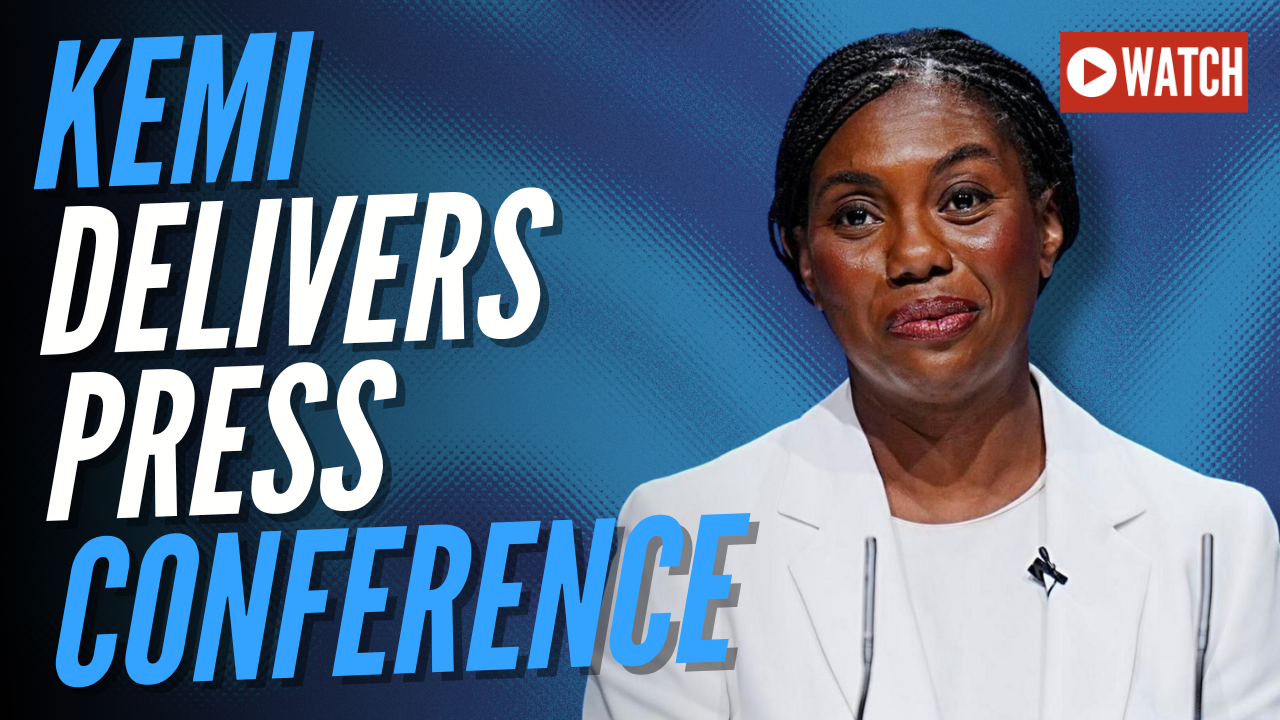
Kemi Badenoch is delivering a ‘landmark’ press conference as Starmer faces questions over why he appointed Mandelson as ambassador. Push what’s falling…
Politics
Will Prescott: Why Australia’s centre-right is having an identity crisis

William Prescott is a researcher at Bright Blue.
Last week, the National Party Leader, David Littleproud, announced he was withdrawing his Party from its longstanding coalition with Australia’s main centre-right party, the Liberals, for the second time since last year’s disastrous election loss. With the Australian centre-right parties now divided and losing ground and under siege from both their left and right, the only winner is Prime Minister Anthony Albanese’s Labor Party.
Since its unexpectedly large defeat at last May’s federal election, the Coalition has struggled to overcome the centre-right’s deep structural problems. Reduced to just 43 seats in the 150-member House of Representatives, the Coalition parties were all but wiped out in the major cities that most Australians call home. However, it held on more strongly in rural areas, with the more conservative, country-based National Party holding onto all of its 15 lower-house seats.
The increased relative strength of the National Party, which suddenly found itself holding more than a third of the Coalition’s total 43 seats, compared to just over a quarter after the 2022 election, immediately made itself felt. Amidst fears that the Liberals would shift to the left to win back former heartland inner-city seats, the Nationals announced in late May 2025 that they would not renew the Coalition agreement.
While the blowback was considerable, and the Nationals returned to the Coalition just over a week later, the underlying tensions remained. Ultimately, at least on the climate issue, the Nationals got their way in November last year, when Liberal Leader Sussan Ley officially ditched her Party’s 2050 net zero target.
More recently, the Nationals’ intransigence arises from a fear that their vote share is being increasingly cannibalised by Pauline Hanson’s right-populist One Nation party. An on-and-off-again feature of the Australian political landscape, Hanson’s core platform, which has barely changed since her political emergence in the mid-1990s, centres around drastically reducing immigration and a hostility to multiculturalism.
Concerningly, from a centre-right perspective, One Nation has surpassed the now-dissolved Coalition in opinion polls. According to a January 2026 Newspoll — generally considered the most trustworthy Australian pollster — One Nation’s vote share stood at 22 per cent, just ahead of the Coalition’s lamentable 21 per cent. This is up from just 6.4 per cent of the vote at last year’s election.
Especially worryingly for the Nationals, the evidence suggests that One Nation’s support is most concentrated in the same regional and rural areas that are home to many of the Coalition’s surviving MPs and Senators. Reflecting Hanson’s potential appeal to disaffected rural voters, the maverick former Nationals Leader, Barnaby Joyce — deposed by Littleproud in May 2022 — defected to One Nation in December last year out of frustration at not being reappointed to the frontbench.
Matters came to a head on Thursday last week, when, following a row over post-Bondi hate speech laws, Littleproud declared the Coalition was “untenable” so long as Ley, who has been in post since replacing Peter Dutton after last year’s election loss, remains Liberal Leader. Although the immediate crisis is not of her making, it looks set prove the final straw for Ley, who now faces an imminent leadership challenge amid poll ratings that have been dismal for some time.
Unfortunately, there is no easy road back for the embattled former Coalition parties. While pivoting to the right on immigration, cultural, and climate issues may, in the short term, help to reunite the Coalition and reclaim ground from One Nation, it will do nothing to help regain the more socially liberal urban seats it needs to unseat Labor, and which it has been losing for some time.
Between the 2019 and 2022 elections, for example, the Liberals lost seven of their former heartland seats to the socially and economically liberal ‘teal’ independents. Among the seats lost were those held by former Prime Ministers Sir Robert Menzies and Tony Abbott, as well as former Treasurer Josh Frydenberg. The only Liberal who managed to recover a teal seat at the last election was the moderate and openly gay Tim Wilson.
Amidst this centre-right infighting, the only true victor is Albanese. Despite a modest legislative record since taking office in 2022, a humiliating constitutional referendum defeat, an ongoing cost-of-living crisis and, most recently, a bungled response to the Bondi beach shootings, the absence of a viable opponent means he continues to enjoy a dominant electoral position. While, according to the latest Newspoll, Labor’s primary vote sits at a lacklustre 32 per cent, it now leads the two-party preferred vote 55 per cent to 45 per cent — Australia’s compulsory preferential voting system means this is the more significant gauge of political fortunes. Indeed, at the last election, it secured a landslide election victory with just 34.6 per cent of the primary vote.
While Ley’s likely imminent overthrow may well pave the way for the Coalition’s restoration, it won’t solve the centre-right’s identity crisis. Pivoting to the right may put Liberal-National tensions on ice, but it will make it virtually impossible to win back the cities and, by extension, government. Pivoting to the centre, however, may help to regain the cities but risks entrenching the Liberal-National divide. Until the centre-right can unite around a compelling vision that appeals to both town and country, The Lodge will remain Albanese’s for the keeping.
Politics
Bank of England Holds Interest Rates at 3.75%
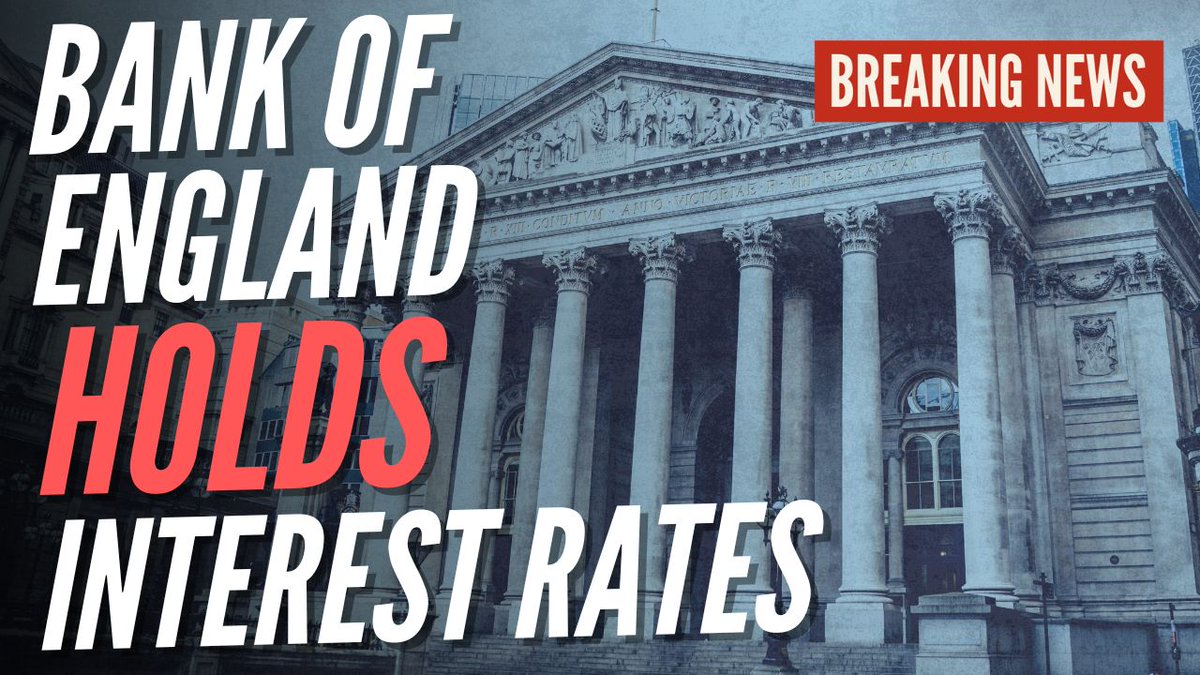
The Monetary Policy Committee of the Bank of England has voted to hold interest rates at 3.75%. A majority of 5–4 hold to cut. Close…
Politics
Putin’s Aide Weighs In On Claims Epstein Was Russian Spy
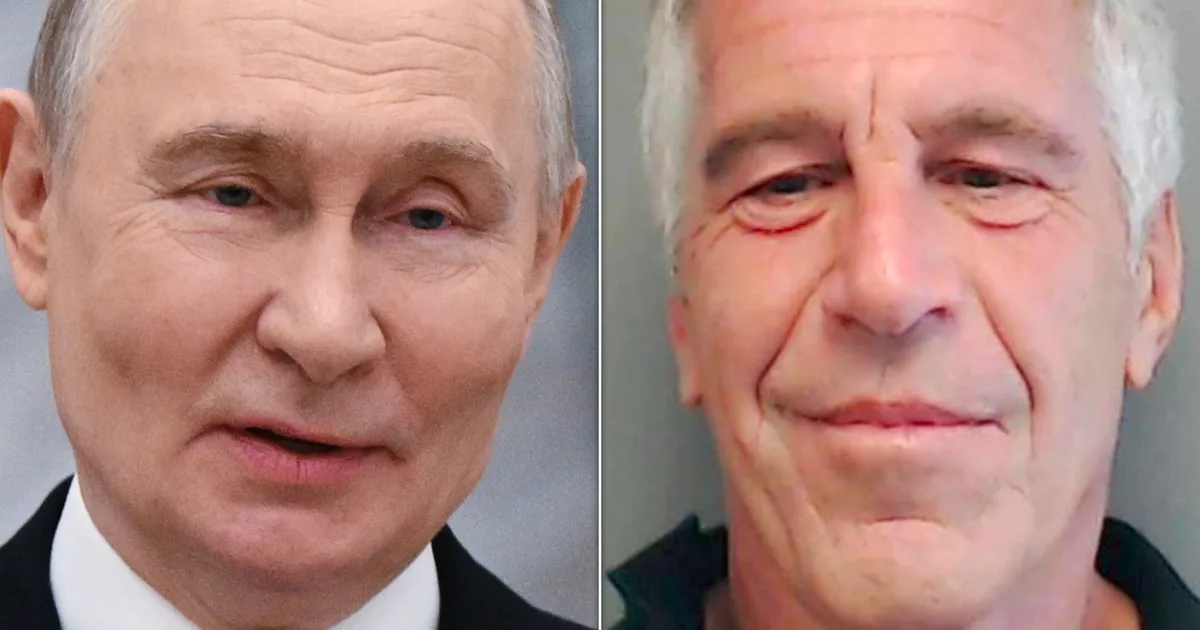
Vladimir Putin’s aide has dismissed claims that Jeffrey Epstein was a Russian spy.
Documents released by US Congress at the weekend unveiled the late paedophile’s extensive network with the global elite.
The files have raised suspicions he was passing on intelligence to Moscow, although there is no concrete proof.
On Tuesday, Polish prime minister Donald Tusk said: “A growing number of commentators and experts assume that it is highly probable that this [Epstein scandal] was a premeditated operation by the Russian KGB.
“This so-called ‘honey trap’ set for the elites of the Western world, primarily the US.”
Tusk offered no evidence to support his claim, but suggested the “unprecedented paedophilia scandal was co-organised by Russian intelligence services” to hurt Warsaw.
“This can only mean that they also possess compromising materials against many leaders still active today,” he said.
Tusk announced that his government would launch an investigation into what it believes were potential connections between Epstein and Russia’s intelligence services – and the possible knock-on consequences for Poland.
Kremlin spokesperson Dmitry Peskov dismissed that theory though, saying: “I would like to joke about such versions, but let’s not waste our time.”
“The theory that Epstein was controlled by Russian intelligence services can be taken in any way, but not seriously,” he added.
Russia is mentioned almost 10,000 times in the three million documents released by the US Department of Justice while Putin is mentioned more than 1,000 times.
The files suggest Epstein was in contact with some young women from Russia and may have tried to introduce a 26-year-old Russian woman to Andrew Mountbatten-Windsor, the former prince.
Writing in an email to “the Duke” two years after his conviction for soliciting an underage girl for sex, Epstein said: “I have a friend who I think you might enjoy having dinner with, her name is irina she will be london 20-24.”
There is no evidence to suggest Epstein met Putin in person, though his emails suggest repeated attempts were made.
One such encounter in 2014 was cancelled after 298 people were killed when Russian forces shot down flight MH17 over Ukraine.
Epstein also alleged that Bill Gates sought treatment for a sexually transmitted disease caught from “sex with Russian girls”. The Microsoft founder denies these claims.
Former head of MI6′s Russia desk Christopher Steele told Times Radio it was “very likely” Epstein was sending secrets to Russia in exchange for payment.
He said: “My understanding from my American sources is that as early as the 1970s, Epstein was effectively involved with Russian organised crime in Brighton Beach in New York and through them with the Russian mission in New York and was almost certainly recruited by them at that time.”
He added: “Possibly, the majority of his investment funds, which seem to never have been explained, actually came from the Soviet Union.”
-

 Crypto World6 days ago
Crypto World6 days agoSmart energy pays enters the US market, targeting scalable financial infrastructure
-
Crypto World7 days ago
Software stocks enter bear market on AI disruption fear with ServiceNow plunging 10%
-

 Politics6 days ago
Politics6 days agoWhy is the NHS registering babies as ‘theybies’?
-

 Crypto World6 days ago
Crypto World6 days agoAdam Back says Liquid BTC is collateralized after dashboard problem
-

 Video3 days ago
Video3 days agoWhen Money Enters #motivation #mindset #selfimprovement
-

 Fashion6 days ago
Fashion6 days agoWeekend Open Thread – Corporette.com
-

 Tech1 day ago
Tech1 day agoWikipedia volunteers spent years cataloging AI tells. Now there’s a plugin to avoid them.
-

 NewsBeat6 days ago
NewsBeat6 days agoDonald Trump Criticises Keir Starmer Over China Discussions
-

 Politics3 days ago
Politics3 days agoSky News Presenter Criticises Lord Mandelson As Greedy And Duplicitous
-

 Crypto World5 days ago
Crypto World5 days agoU.S. government enters partial shutdown, here’s how it impacts bitcoin and ether
-

 Sports5 days ago
Sports5 days agoSinner battles Australian Open heat to enter last 16, injured Osaka pulls out
-

 Crypto World5 days ago
Crypto World5 days agoBitcoin Drops Below $80K, But New Buyers are Entering the Market
-

 Crypto World3 days ago
Crypto World3 days agoMarket Analysis: GBP/USD Retreats From Highs As EUR/GBP Enters Holding Pattern
-

 Crypto World6 days ago
Crypto World6 days agoKuCoin CEO on MiCA, Europe entering new era of compliance
-
Business6 days ago
Entergy declares quarterly dividend of $0.64 per share
-

 Sports3 days ago
Sports3 days agoShannon Birchard enters Canadian curling history with sixth Scotties title
-

 NewsBeat4 hours ago
NewsBeat4 hours agoStill time to enter Bolton News’ Best Hairdresser 2026 competition
-

 NewsBeat2 days ago
NewsBeat2 days agoUS-brokered Russia-Ukraine talks are resuming this week
-

 NewsBeat3 days ago
NewsBeat3 days agoGAME to close all standalone stores in the UK after it enters administration
-

 Crypto World2 days ago
Crypto World2 days agoRussia’s Largest Bitcoin Miner BitRiver Enters Bankruptcy Proceedings: Report






